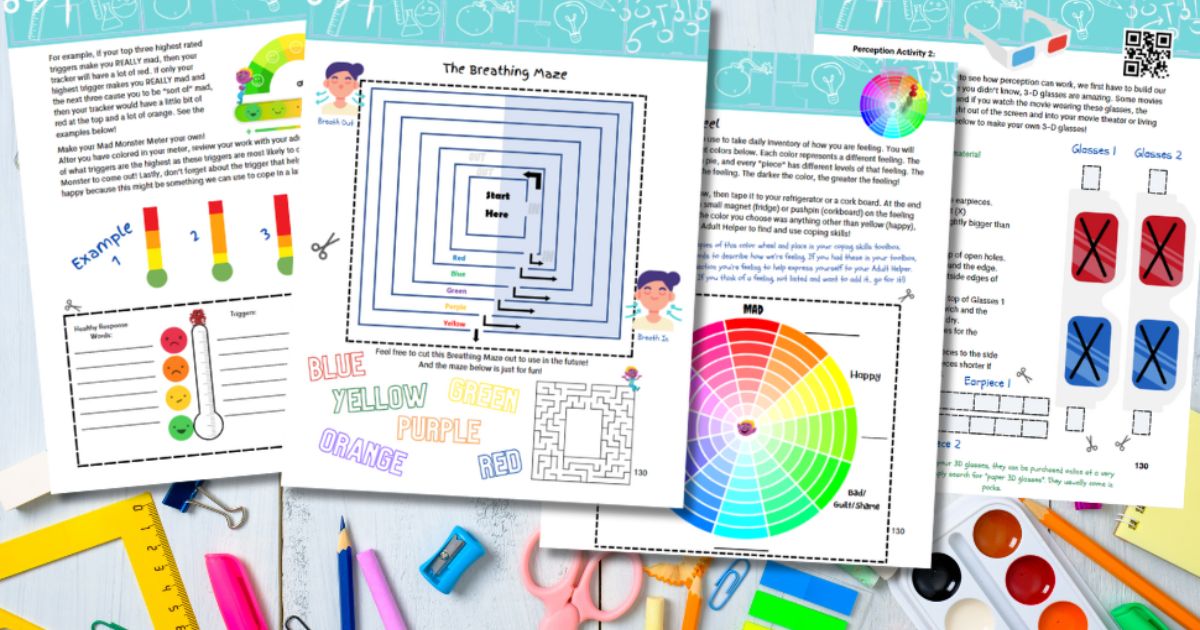Creating Mental Health Characters and Metaphors
Dustin Wright, a Staunton mental health counselor, found a unique but powerful way to connect with one of his difficult young clients through “Hobbles”.
Traditional therapies failed against such an unyielding and obstinate adolescent boy until the turning point came in the form of magic trick.
Just by introducing some magic tricks, Wright not only captured the boy’s attention but also established an opening through which they could communicate.
“I happened to have these sponge magic balls. We’re sitting here and I’m like, ‘Hey let’s not talk. You want to see a magic trick?’” recalled Wright, describing how the situation changed.
The boy’s excitement about these magic tricks led to a real conversation between them thereby putting another thought on Wright’s mind.
Looking for alternative means of engaging and enlightening his clients is what drove Mr. Wright into platforms such as Pinterest and YouTube.
There he searched for science experiments and magic shows that could be used as similes in explaining psychological concepts. What he had in mind was teaching coping mechanisms and illuminating emotional cues.
One night while watching a show that discussed Stan Lee’s mnemonic devices for creating memorable comic book characters, it occurred to him.
In this way, Mr. Wright realized he could make characters represent different emotions by using this notion as leverage.
“So, when you hear temper think happy right? That would be H. I need a character whose name starts with H” clarified Wright.
After that, he came up with “Herbert the Happy Hobble” which became the foundation of his book and the namesake of his publishing company called Happy Hobble Books.
The Birth of Happy Hobble Books: From Magic to Metaphor
In “Hobbles”, an imaginative concept by Wright are mythical beings having similar powers with those seen in Incredible Hulk movies when their emotions get out of hand.
Each character in the workbook is an emotion, making it easier for children to relate to that subject as they deal with various states of mind.
Characters as Emotional Guides
In the workbook, we meet characters such as “Herbert the Happy Hobble” who becomes “Mad Monster” when he yells or kicks.
The main idea behind this book is to make people understand that everyone has feelings like anger and how they can be dealt with without hurting oneself.
Other characters include the “Sad Snail” standing for sadness which means slowing down or being reclusive, while the “Anxious Alligator” helps people understand and cope with anxiety.
Supporting Families in Full
Wright also produced a video series called the Happy Hobble. For further clarification and support, Wright had QR codes embedded in this resource that guided adults and teenagers step by step.
Furthermore, the workbook along with its accompanying materials are family-centered since Wright handles numerous households with similar dynamics.
By acknowledging the possibility of disharmony within emotionally turbulent families, Mr. Wright’s approach fosters collective understanding and growth through shared learning experiences.
Acknowledgements And Community Support
“My Temper Taming Workbook…For Us,” an innovative workbook by Wright received acclamation as it was awarded International Impact Book Award alongside Nonfiction Authors Association Gold Award.
This demonstrates his commitment towards mental health advocacy since some percentage of the sales from this book go to Mental Health America’s affiliate in Augusta County.
Beyond his achievements as a counselor and educator, Wright’s dedication to mental health has been previously acknowledged.
In 2018, the International Crisis Intervention Team recognized him as the Behavioral Health Professional of the year for the steps he has taken in creating awareness for mental health emergencies.
At present, Wright works at Wright Psychological Services located in Staunton, where he shares his skills with people of all ages.
A Visionary Approach to Mental Health Education
Wright’s methods of storytelling using metaphor and character have revolutionized mental health education for young people and their families.
Through his workbook and related resources, he provides tools not only for emotional management but also unity within families coping with different emotional battlegrounds.
What creativity can do in supporting mental health education is evident from Wright’s contributions.




























